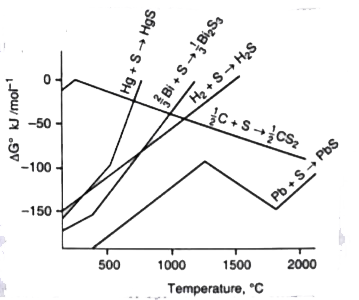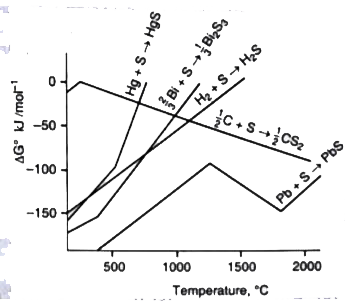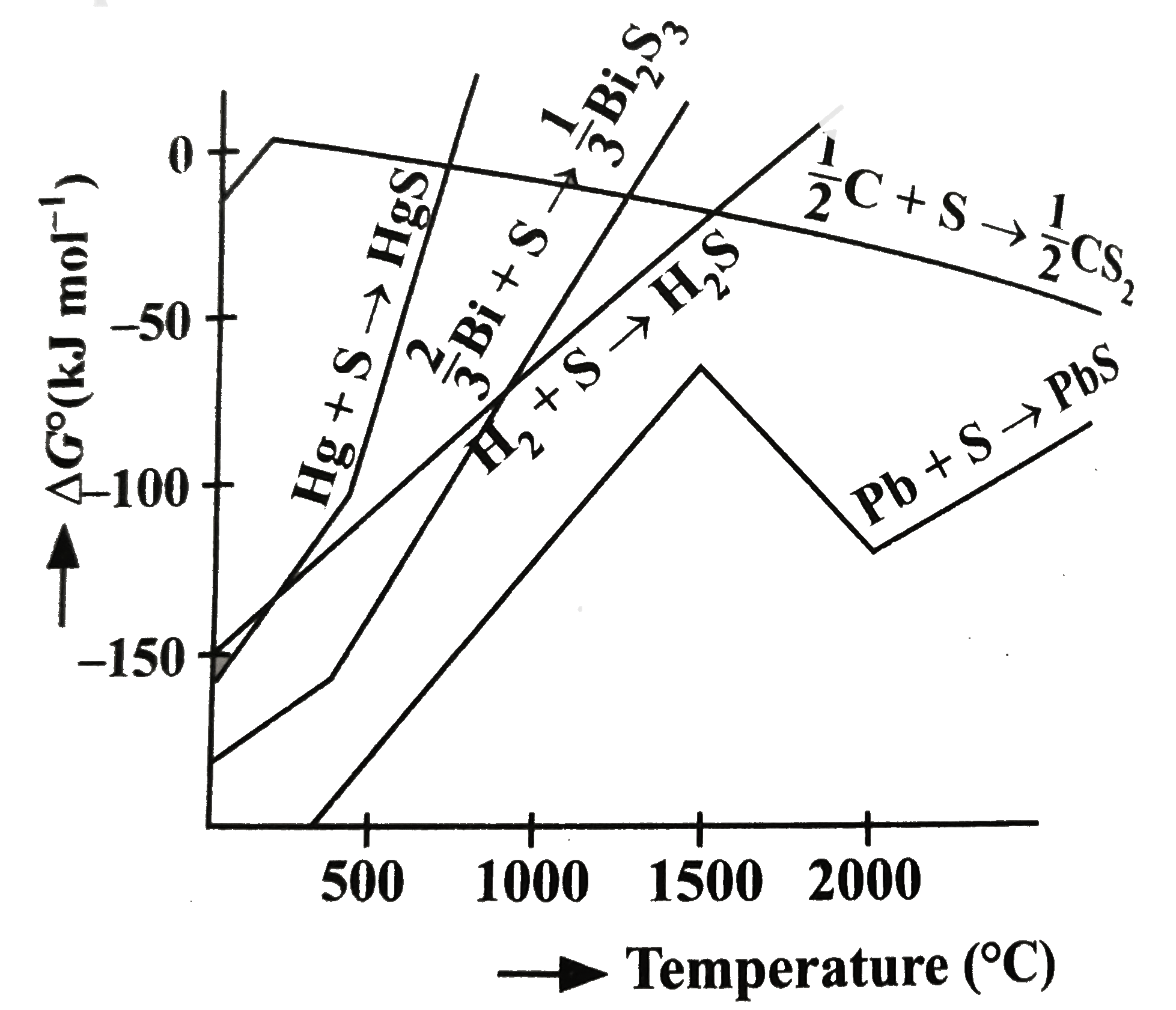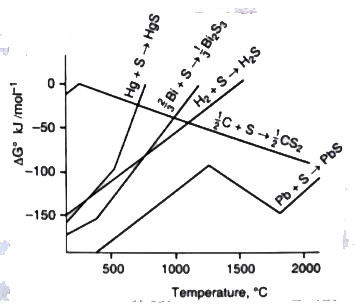The Ellingham diagram for a number of metallic sulphides is shown below.

Which of the following sulphides can not be reduced to metal by H2 at about 1000∘C ?
HgS
PbS
Bi2S3
All of these
The correct Answer is:B
Step by step video & image solution for The Ellingham diagram for a number of metallic sulphides is shown below. Which of the following sulphides can not be reduced to metal by H_(2) at about 1000^(@)C ? by Chemistry experts to help you in doubts & scoring excellent marks in Class 12 exams.
Updated on:21/07/2023Topper's Solved these Questions
- METALLURGYBOOK - VK JAISWAL ENGLISHCHAPTER - METALLURGYEXERCISE - Level 3 (Passive 4)
4 Videos
- METALLURGYBOOK - VK JAISWAL ENGLISHCHAPTER - METALLURGYEXERCISE - Level 3 (Passive 5)
6 Videos
- METALLURGYBOOK - VK JAISWAL ENGLISHCHAPTER - METALLURGYEXERCISE - Level 3 (Passive 2)
6 Videos
- ENVIRONMENTAL CHEMISTRYBOOK - VK JAISWAL ENGLISHCHAPTER - ENVIRONMENTAL CHEMISTRYEXERCISE - ASSERTION-REASON TYPE QUESTIONS
14 Videos
- p-BLOCK ELEMENTSBOOK - VK JAISWAL ENGLISHCHAPTER - p-BLOCK ELEMENTSEXERCISE - SUBJECTIVE PROBLEMS
35 Videos
Similar Questions
Knowledge Check
Which of the following is not true about alkali metals?
AAlkali metals do not occur free in nature.BAlkali metals are good oxidising agents.CAlkali metals salts impart colour to the flameDAlkali metal salts are generally ionic.
The Ellingham diagram for a number of metallic sulphides is shown below.

Which sulphide occurs to minimum extent in nature ?
View SolutionThe Ellingham diagram for a number of metallic sulphides is reproduced below.

Answer the questions given below :
(iii) Which of the following sulphides can be reducted to metal by H2 at about 1000K ?
View SolutionWhich of the following statements are true about metals ?
View SolutionWhich of the following metal sulphide is soluble in hot and dil HNO3?
View SolutionWhich of the following may reduce to metal while roasting?
View SolutionWhich of the following metallic oxides cannot be reduced by normal reducing agents?
View SolutionWhich of the following metal sulphide does not undergo hydrolysis?
View Solution

